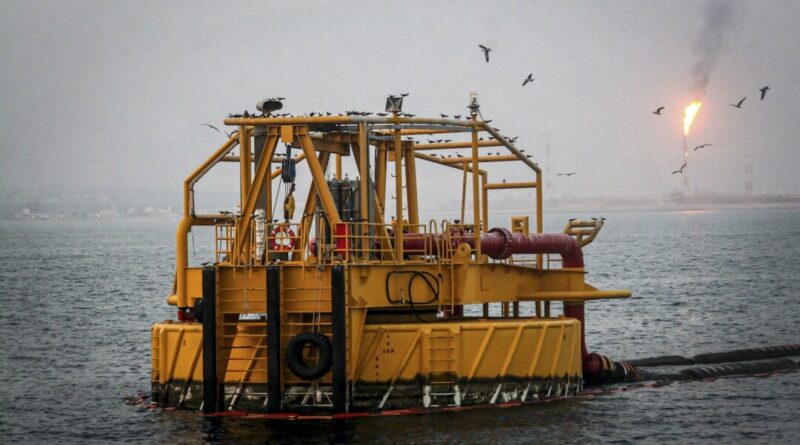US Imposes Sanctions on Iranian Energy Tycoon for Nuclear and Terror Financing
The goal is to cut off revenue streams supporting Iran’s nuclear ambitions and its network of terror proxies, as stated by the Treasury Department.
The US government has implemented extensive sanctions on an Iranian liquefied petroleum gas (LPG) magnate and his extensive global network of companies and affiliates, alleging that they have helped facilitate hundreds of millions of dollars in oil and gas exports that finance Iran’s nuclear weapons program and terror proxies in the Middle East.
“Emamjomeh and his network attempted to export numerous shipments of LPG—including from the United States—to circumvent US sanctions and generate revenue for Iran,” stated Secretary of the Treasury Scott Bessent. “The United States is dedicated to holding accountable those who aim to provide the Iranian regime with the necessary funding to advance its destabilizing activities in the region and globally.”
The individuals and entities facing sanctions are accused of contributing to revenue streams used by the Islamic Revolutionary Guard Corps (IRGC) and its regional proxies, which include terror organizations like Hezbollah, the Houthis, and Hamas.
For more than a decade, Seyed Asadoollah Emamjomeh and his son, Meisam Emamjomeh—who is also sanctioned—have operated a clandestine LPG empire through a network of companies based in Iran, the United Arab Emirates, and the United Kingdom, according to the Treasury Department.
The sanctioned companies under their control include: Caspian Petrochemical FZE, Pearl Petrochemical FZE, and Worldwide LPG Limited. Additionally, at least nine other Iran-based companies—allegedly used to conceal shipments and evade sanctions—have also been identified in Treasury’s actions.
Any property or interests in property of the named individuals or entities within US jurisdiction are now frozen. Secondary sanctions may be imposed on non-US companies that continue to transact with the blacklisted entities.
Although progress has been indicated by both sides during talks in Muscat and Rome this month, the Treasury’s actions emphasize Washington’s position that sanctions relief will only follow verifiable constraints on Tehran’s nuclear and ballistic missile ambitions.
Preventing Iran from obtaining a nuclear weapon has been a key aspect of Trump’s foreign policy, although he has shown willingness to allow civilian nuclear facilities as long as uranium enrichment is significantly reduced.
A third round of talks is scheduled for April 26 in Oman.





